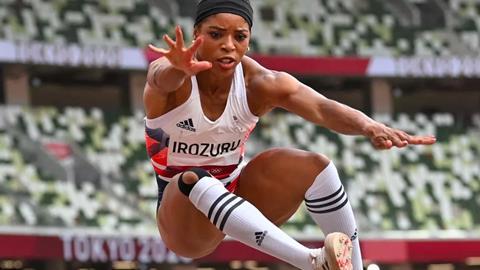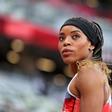Christian and Team GB Olympian Abigail Irozuru shares her thoughts on allowing trans-women to compete in all female sports.

As a female athlete in elite sport, I believe the decision of British Cycling last month to follow World Aquatics, British Triathlon and World Athletics and UK Athletics by creating an open category for transgender athletes is the right move.
The beauty of sport is its diverse and therefore inclusive nature. That’s why we have sports ranging from short sprints to ultra-marathons; wheelchair basketball to freestyle skiing. And that’s why we have varied categories and events, such as the Paralympic Games and the World Transplant Games. By extension, the newly-created Open Category, specifically designed for fair inclusivity of transgender athletes, creates the opportunity for increased participation in sport.
This decision also protects the fairness and integrity of womens’ sport for this and future generations of young girls who can look at sport and see they have equal chance and opportunity to reach the top.
The newly-created Open Category, designed for fair inclusivity of transgender athletes, creates the opportunity for increased participation in sport.
As a long jump athlete who has been ranked among the top-ten female long jumpers in the world, my personal best of 6.86m wouldn’t even make the top-100 all-time leaps for junior (under-20-year-old) biological males in the UK! Even Flo Jo’s seemingly untouchable 100m world record of 10.49 seconds would only rank her 77th on the UK junior men’s All Time list.
If even this legendary, record-breaking sportswoman would struggle to keep up with high-school boys in their fields of play, how would the rest of us fair? I say this because transgender female athletes are biologically male and the available medical evidence indicates an irreversible physical advantage gained through male puberty. British Cycling concluded, "even with the suppression of testosterone, trans women who transition post-puberty retain a performance advantage."
Conversely, biological females have what may be considered to be a considerable competitive disadvantage post-puberty - periods and pregnancy. I’ll always remember the frustrated words of a competitor’s coach following her relatively "poor" performance at the Tokyo Olympic Games. “Her period came today. There’s nothing we could do. That cost her gold.”
Read more on sport
Coping with overnight fame: five prayers for Emma Raducanu
Another memory - sitting with a Rio Paralympic Champion ten months before the Tokyo Games, both of us anxiously tracking forward our menstrual cycles and discussing our options to shift our cycle in the case that it clashed with our qualifying or final rounds at a Games we had been prepping towards for what would be 5 years of our lives.
And in recent years, you may have heard increasing numbers of frustrated female athletes revealing the negative impact their periods have on their performances. Yet, this is a physical disadvantage transgender female athletes will never have to contend with.
I don’t have time to go into the cumbersome comeback journey of female athletes post-pregnancy. But, it’s tough. Not only the comeback, but equally the choice. Can I have a baby now or do I delay until after my career because motherhood and mastery in sport are … ?
Over the last five years, the overwhelming narrative around transgender inclusion in womens’ sport, from my perspective, has felt like this - Science be damned. We don’t care about protecting female sport. Fight for yourselves.
“Her period came today. There’s nothing we could do. That cost her gold.”
How do you fight against systems that choose to stare brazenly at the science and disregard it to the detriment of young girls and elite sportswomen worldwide? From Laurel Hubbard to Lia Howard, Emily Bridges and most recently, Austin Killips, transgender women smash previously awe-inspiring, seemingly unbreakable female school, college, national and world records like they are nothing.
And whilst seeing this happen time and again ran me off Twitter because it felt so overwhelmingly impossible to wake up everybday to more news around the dangerous degradation of womens’ sport, particularly in the NCAA, I am so grateful for strong women like Mara Yamauchi, Sharron Davies, Fair Play for Women and the countless other voices and organisations speaking up, campaigning, shouting and screaming for sporting organisations and federations to grow a backbone and clarify their category rules to ensure sport is truly fair, inclusive and accessible for all.
So, though it has taken time and we still aren’t there yet, British Cycling’s decision is one that I applaud and pray will have a positive ripple effect leading to a truly fair playing field once again across all womens’ sport, because, as British Cycling’s Chief Executive, Jon Dutton rightly states, this is a "challenge far greater than one sport."
































No comments yet